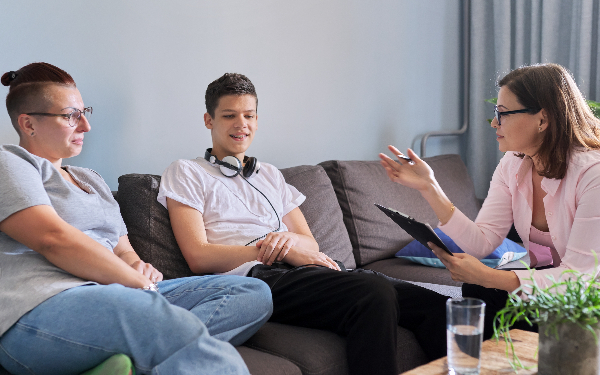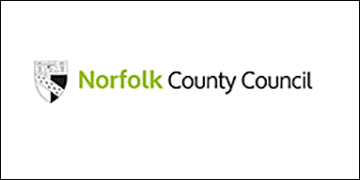The main objective of children’s services in Norfolk County Council is to keep families together and have fewer children going into care.
One of the services Norfolk’s social workers can rely upon to help them achieve this is Stronger Families.
When families are at risk of having children taking into care, Stronger Families offers those who may benefit a clinical service, based on systemic intervention, called Functional Family Therapy Child Welfare (FFT-CW).
Stronger Families is a partnership between Norfolk County Council, Family Psychology Mutual and Bridges Outcomes Partnerships to deliver an outcomes-based preventive service embedded in Norfolk’s children’s services teams.
The service’s decision making is data-driven. This data is analysed continuously to make improvements to the service.
Currently, Stronger Families is celebrating the fact that it has kept children out of care for over 100,000 days, based on helping over 200 families. This has led to a significant cost saving for the council as well as better home experiences for children and families who are able to stay together.
What is Functional Family Therapy?
FFT-CW is a short-term, intensive, evidence-based family intervention. It is strengths-based and supports the family to improve their communication and interpersonal relationships.
The whole family is encouraged to attend, and although this is not a statutory service, staff find that families are very willing to engage with them. Those with really young children are usually not referred because the children are too young to receive the therapy.
The practitioners in the team are called FFT-CW workers. The team is multidisciplinary, with a breadth and depth of experience, which may include mental health nursing, social work and systemic psychotherapy. All team members deliver the same model of intervention.
Sessions usually occur in the family’s home, once a week for 4-6 months, depending on the circumstances. This is different to the traditional interventions that local authorities offer.
Ruth, a practitioner in Stronger Families, was previously working as a children’s social worker and then trained as a psychotherapist.
“I was doing one-to-one therapy with children as part of my qualification, and I think, for me, Family Functional Therapy bridges the gap almost between social work and therapy. I’m able to use some of the skills in working in families, including in really challenging circumstances, where they might not be certain about our intervention.
“We are looking very much through that relationship lens and focusing in on that aspect of the work rather than, obviously as a social worker, all the different things you have to hold in your head and manage at the same time,” she says.
Referring to Stronger Families
Roxanne, a social worker in the family assessment and safeguarding team, says Stronger Families is a great service for practitioners to refer their families to.
“It helps to stabilise things in the home. I’ve used it with teenagers, mainly, and it helps them communicate what they want and need to their parents. It helps the parents hear that and learn how to manage their communication styles,” she explains.
“Where I’ve seen the big difference is in helping them communicate in a healthy way to improve things – it also helps with negotiation.”

Roxanne, social worker who refers to Stronger Families
She recalls the case of Emma*, a 14-year-old girl on a child in need plan who was playing truant from school and at risk of exploitation, and whose parents were unable to communicate with her.
“The intervention with Stronger Families really made her home life better for her so she wasn’t out on the streets every night drinking with friends, at risk of being assaulted, or worse.”
After the intervention from Stronger Families, the family home was not as volatile, and Emma was at less risk of exploitation.
She started attending school more regularly, the risk was downgraded and she was taken off a child in need plan. Emma was then referred to Norfolk’s family support service for ongoing support. Roxanne says there has been no need for intervention by children’s services for over a year now.
“Because Stronger Families is such a long intervention, you can really get in with the family and do more work than you typically would with the other support services we’ve got. Our in-house services are a maximum of about 16 weeks. There’s more time with Stronger Families to iron out all the niggles.”
Practice models
In Norfolk’s children’s services the practice model is Signs of Safety but within this there is an emphasis on a more trauma-informed, relational approach. And Stronger Families takes this further using Functional Family Therapy.
Kate Dexter, assistant director of family help and high needs, says she has seen first-hand the benefits of the service. She has seen how families have been kept together that otherwise would have had their cases escalated into care proceedings with their children going into long-term care.
“[Stronger Families’] whole focus is abuse and neglect, not just family breakdown, which would be the norm with family therapy. They help parents to think differently about the children’s needs and develop empathy and intuition to what their children need but they also help children to interact with their parents differently. So, it’s really bringing about whole family culture change to address issues of abuse and neglect within the household.”

Kate Dexter, AD
*name has been changed for anonymity
Are you interested in a career at Norfolk? Take a look at Norfolk’s Employer Profile
Check out the latest vacancies in Norfolk County Council
Listen to a podcast from Norfolk’s adults’ services
Read about the Preparing for Adult Life team
Read about collaborative working in Norfolk’s children’s services




 Facebook
Facebook X
X LinkedIn
LinkedIn Instagram
Instagram